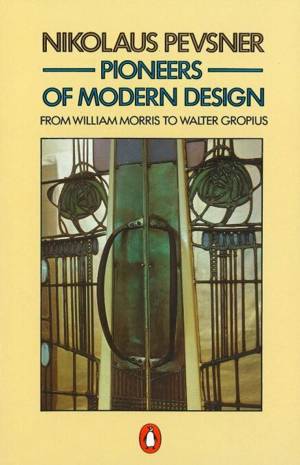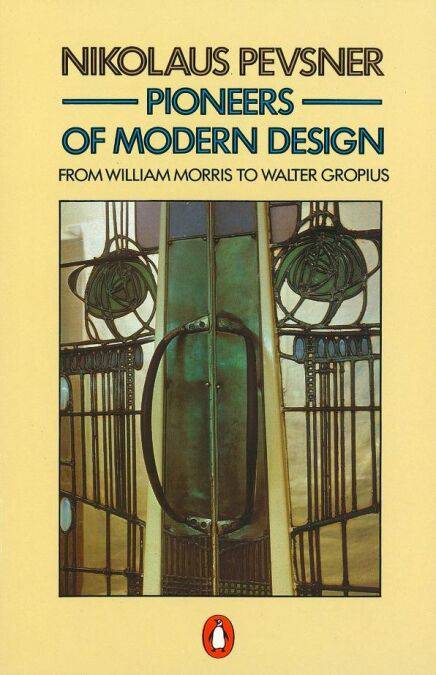
- Afhalen na 1 uur in een winkel met voorraad
- Gratis thuislevering in België vanaf € 30
- Ruim aanbod met 7 miljoen producten
- Afhalen na 1 uur in een winkel met voorraad
- Gratis thuislevering in België vanaf € 30
- Ruim aanbod met 7 miljoen producten
Zoeken
Pioneers of Modern Design E-BOOK
From William Morris to Walter Gropius
Nikolaus Pevsner
E-book | Engels
€ 10,99
+ 10 punten
Omschrijving
One of the most widely read books on modern design, Nikolaus Pevsner's landmark work today remains as stimulating as it was when first published in 1936. This expanded edition of Pioneers of Modern Design provides Pevsner's original text along with significant new and updated information, enhancing Pevsner's illuminating account of the roots of Modernism. The book now offers many beautiful colour illustrations; updated biographies and bibliographies of all major figures; illustrated short essays on key themes, movements, and individuals; a critique of Pevsner's analysis from today's perspective; examples of works after 1914 (where the original study ended); a biography detailing Pevsner's life and achievements; and much more. Pevsner saw Modernism as a synthesis of three main sources: William Morris and his followers, the work of nineteenth-century engineers, and Art Nouveau. The author considers the role of these sources in the work of early Modernists and looks at such masters of the movement as C.F.A. Voysey and Charles Rennie Mackintosh in Britain, Sullivan and Frank Lloyd Wright in America, and Adolf Loos and Otto Wagner in Vienna. The account concludes with a discussion of the radical break with the past represented by the design work of Walter Gropius and his future Bauhaus colleagues. Nikolaus Pevsner (1902-1983), a distinguished scholar of art and architecture, was best known as editor of the 46-volume series The Buildings of England and as founding editor of The Pelican History of Art.
Specificaties
Betrokkenen
- Auteur(s):
- Uitgeverij:
Inhoud
- Aantal bladzijden:
- 272
- Taal:
- Engels
Eigenschappen
- Productcode (EAN):
- 9780141932323
- Verschijningsdatum:
- 27/03/1991
- Uitvoering:
- E-book
- Beveiligd met:
- Adobe DRM
- Formaat:
- ePub

Alleen bij Standaard Boekhandel
+ 10 punten op je klantenkaart van Standaard Boekhandel
Beoordelingen
We publiceren alleen reviews die voldoen aan de voorwaarden voor reviews. Bekijk onze voorwaarden voor reviews.








